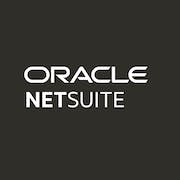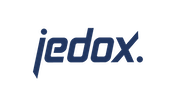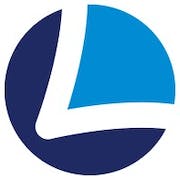Managing finances can be a daunting task, whether it's for personal or business purposes. For small businesses, keeping track of expenses and ensuring that all bills are paid on time is critical to staying afloat and growing the business. With so many budgeting software options to choose from, it can be overwhelming to determine which one is the right fit for your business needs. However, investing in the right budgeting software can make all the difference in managing financial tasks seamlessly and accurately. In this guide, we will review the best budgeting software options on the market to help you make an informed decision for your business.
What is Budgeting Software
Budgeting software is a powerful tool that businesses use to track and report their finances. It helps businesses to stay within their budget and avoid going into debt. This software allows businesses to create a financial plan, track expenses, and report on earnings. It is popular among small businesses and large corporations. Common use cases for Budgeting Software include: - Project budgeting: Helps businesses to manage project costs, allocate resources efficiently and track progress. - Cash flow management: Tracks expenses and cash inflows, identifies areas where the business is overspending and helps businesses manage their cash flow. - Financial planning and forecasting: This includes setting financial goals, creating budgets and financial projections. There are several types of companies that use Budgeting Software- these include: - Startups and small businesses: These companies may lack in-house financial expertise and hence budgeting software comes in as a cost-effective solution. - Large corporations: These businesses typically have complex financial management needs and require advanced budgeting software. - Non-profit organizations: These organizations may have to manage multiple funding sources, and budgeting software helps track and report on expenses and incomes. In conclusion, Budgeting software is an excellent resource for businesses of all sizes. It streamlines financial management, improves transparency and provides better visibility into financial performance. With the ability to create budgets, track expenses and reduce overspending, Budgeting software can help businesses stay on track financially and accomplish their long-term financial goals.
Benefits of Budgeting Software
As a business owner, manager, or accountant, keeping a close watch on your organization's finances is essential to ensure its continued growth and long-term success. Budgeting software can be an invaluable tool that provides insights into your business's overall financial status, provides forecasting capabilities, and helps you create accurate and realistic budgets for the future. Here are some of the key benefits of using budgeting software for businesses: • Better Financial Clarity: Budgeting software can provide a clear picture of your finances. It allows you to categorize your income and expenditures to understand where the money is coming from and going to. • Improved Forecasting: With proper budgeting software, forecasting becomes effortless. You can have a realistic estimate of what your future financial performance will be like. You can manage the company's cash flow effectively and make profitable business choices based on projections. • Reduced Errors: Manual calculation of finances can lead to errors, and those errors can have a big impact on financial forecasts. With budgeting software, there is less room for errors, and more accuracy in forecasting. • Increases Efficiency: Automation of functions like data backups and report generation can help your accounting team work more efficiently. The finance teams can spend more time understanding and analyzing the numbers, instead of just tabulating them. • Facilitates Team Collaboration: Budgeting software makes it easy for team collaboration. Multiple team members can track and report their budget performance, and the administration or finance team can track and maintain control over the organizational budget, no matter how complex it may be. In summary, manual finance management methods are outdated for businesses. Adopting a budgeting software solution is essential in providing real-time, accurate financial information and increased efficiency in managing an organization’s cash flow. With advanced forecasting capabilities and decreased margins of error, budgeting software can drive strategic decision making to help businesses concentrate on their future growth.
Features of Budgeting Software
Budgeting software is becoming a common tool among businesses for effective financial management. It enables organizations of all sizes to manage their finances efficiently and make informed financial decisions. Here are ten common features of budgeting software that you should look out for: 1. Customizable Budget Templates: Budgeting software often comes with pre-built budget templates that can be customized to suit specific business needs, simplifying the budgeting process. 2. Expense Tracking: The software provides detailed expense tracking functionality, keeping track of expenses in real-time, and providing detailed expense reports. 3. Forecasting: Advanced budgeting software can forecast future income and expenses, allowing businesses to plan their finances better. 4. Goal Setting: With budgeting software, you can set financial goals, such as revenue growth targets, cost-cutting targets and track your progress towards meeting those goals. 5. Collaboration: Budgeting software allows multiple users to collaborate on a budgeting project, providing transparency and accountability. 6. Integration: Some software can integrate with other business tools like accounting software, enabling seamless data transfer and reducing administrative workload. 7. Automatic Data Entry: Good budgeting software can automatically import financial data from bank statements and other sources, making data entry more efficient. 8. Visualization: Visualization enables businesses to see the shape of their financial data through charts, diagrams, and graphs. 9. What-if Analysis: This feature allows businesses to test assumptions and hypothetical scenarios to determine the best course of action. 10. Security: Budgeting software comes with robust security features designed to protect confidential financial data and prevent unauthorized access. In conclusion, budgeting software simplifies and streamlines the budgeting process, providing businesses with insights and analytics to make informed financial decisions. It saves time, enhances collaboration, provides real-time data, and optimizes financial performance, a necessary tool for modern businesses.
Considerations of Budgeting Software
Budgeting software can be a valuable investment for businesses looking to enhance their financial management capabilities. However, selecting the right budgeting software is essential to ensure that businesses get the most value for their money. Here are some factors to consider when choosing budgeting software for your business: 1. Features and Functionality - Businesses should consider the features and functionality of budgeting software to ensure it meets their specific needs. The software should be able to automate budget and forecast creation, track income and expenses, and provide reporting capabilities. 2. Ease of Use - Budgeting software should be easy to use and navigate with an intuitive user interface. The software should be user-friendly, requiring minimal training to get started. 3. Scalability - Businesses should choose budgeting software that can scale with their growth over time. The software should be able to accommodate more users and data as the business expands. 4. Cost - Cost is an essential factor to consider when purchasing budgeting software. Businesses should choose a software package that fits within their budget while still providing the necessary features and functionality. 5. Security - Budgeting software will likely contain sensitive financial data, so businesses should ensure that the software has robust security protocols in place. This includes data encryption, secure storage, and access control. 6. Integrations - Integrations with other financial management tools such as accounting software is another important factor to consider. This can improve the efficiency of financial management and reporting by automating data transfer. In summary, businesses should evaluate budgeting software based on its features, ease of use, scalability, cost, security, and integrations. Choosing the right budgeting software can have a significant impact on the financial management capabilities of a business. By considering these factors, businesses can select a budgeting software solution that meets their specific needs while also enhancing their financial management capabilities.
Software Trends for Budgeting Software
As businesses seek to streamline their financial operations, budgeting software has become increasingly popular. Here are the biggest trends in budgeting software for 2023 and beyond: 1. Cloud-based software: The cloud has become an essential part of business operations, and budgeting software is no exception. Cloud-based solutions provide remote access, real-time collaboration, and scalability. 2. Artificial intelligence: AI-powered budgeting software can analyze data and provide insights and recommendations based on the company's financial history. These solutions can also automate time-consuming tasks, freeing up resources for other projects. 3. Mobile optimization: With more remote work options, mobile optimization for budgeting software is becoming increasingly important. Businesses need access to budgeting tools on-the-go. 4. Transparency and collaboration: Collaboration features are becoming a necessity in budgeting software. Transparency and the ability to involve multiple stakeholders in budgeting decisions are critical for efficient financial management. 5. Integration: Integration with other financial tools, such as accounting software, can streamline the budgeting process. This allows for seamless data transfer between systems, reducing the risk of human error and saving time. As businesses look to optimize their financial operations, these budgeting software trends will continue to shape the industry. By adopting these new features, organizations can streamline their budgeting processes and make more informed financial decisions.









